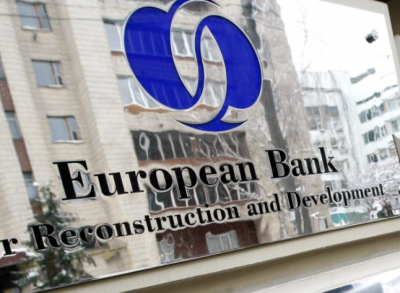The European Bank for Reconstruction and Development (EBRD) and the European Union (EU) are opening the EU4Business-EBRD credit line with the limit of EUR 60 million to finance projects of small- and medium-sized enterprises (SME) in Ukraine, EBRD Managing Director, Eastern Europe and Caucasus Matteo Patrone said at a presentation of the project in Kyiv on Friday.
He said the credit line with a limit of around EUR 60 million is intended for SME for using opportunities opened in relation with the Deep and Comprehensive Free Trade Area (DCFTA) Agreement signed by the EU and Ukraine.
Patrone said that borrowers using this credit line will be able to receive long-term loans in the amount of up to EUR 3 million. The loans will be issued in hryvnias.
The credit line is integration from the point of geography and economy, he said. After the establishment of the DCFTA between the EU and Ukraine, local companies obtained many opportunities. The launch of the EU4Business-EBRD credit line allows local SME, which provide almost 80% of jobs in Ukraine, but generate only around 40% of GDP, to have an additional access to financing to develop, become more competitive and meet EU standards, Patrone said.
For projects within the EU4Business-EBRD credit line that will meet certain requirements, incentive grants are also provided to cover up to 15% of the cost of projects.
Patrone said that the funds under this credit line will be provided through state-owned Ukreximbank, which received the equivalent of EUR 22 million for this program, and OTP Leasing, which received EUR 10 million in equivalent. Additional credit resources of around EUR 28 million will be available for other local financial institutions to join this program.
Head of the EU Delegation to Ukraine Hugues Mingarelli said during the presentation of the project that similar credit lines are opened to Georgia and Moldova.
The EU is trying to ensure that these credit lines benefit Ukrainian SME, as well as promote economic growth in Ukraine and strengthen economic relations between the country and the EU. In 2018, exports of Ukrainian goods to the EU grew by 15%, while imports of goods from EU by 11.5%, he said. The EU believes that the DCFTA credit lines contribute to the preservation of these positive trends, Mingarelli said.




